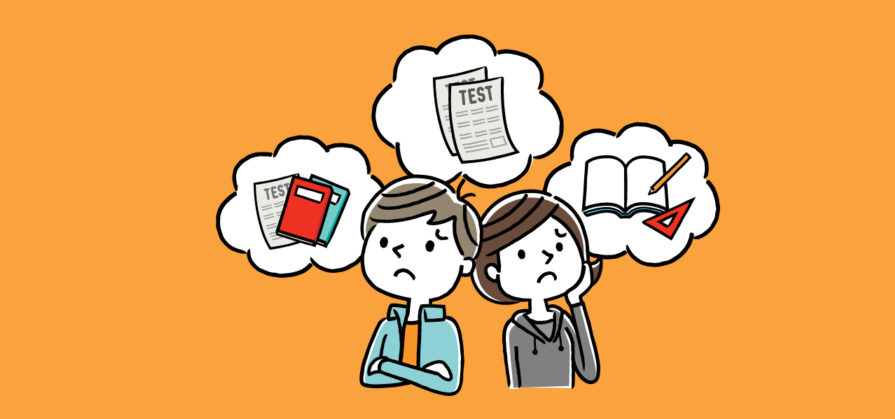Testing in schools plays an important role in gauging how well students are performing academically.
Though it’s common for students to not look forward to testing, some children loath it to the point of developing test anxiety, a form of stress that can hinder their learning.
Test anxiety can be mild or severe and can take on different forms, so it’s important for parents to recognize the symptoms. Keep in mind that every student learns differently and some strategies don’t work for everyone, but over time you and your child can learn what triggers their anxiety and what can be done to manage it.
Set aside the fidget spinners and stress balls; here are several concrete ways you can help your child curb test anxiety.
Practice the strategies. One of the most common causes of test anxiety for young children is that they are still new to schooling and have little experience taking tests. This is an excellent opportunity to share with them common strategies such as:
- Scanning the test and breaking it down into digestible pieces
- Carefully reading or listening to the directions
- Asking questions about the directions if clarification is needed
- Answering the easy questions first to make time to work through the harder ones later
Get plenty of sleep. Sleep deprivation is a common cause of test anxiety. Experts recommend that children ages five to 12 should be getting 10 to 11 hours of sleep a night, especially before a big test. By helping your child make time for studying and sleep, you will begin to establish healthy habits and routines that will help them better operate the next day.
Test anxiety doesn’t always correlate with tests. Children often find it difficult to describe what is bothering them, so asking good questions and helping them clarify what exactly they are struggling with can sometimes help identify the real problems and solutions.
Too much focus can be stressful. Sometimes it’s important to break away from the books for a period and engage in some relaxing activities to get their mind on something else. Meditation, yoga or stretching, and going for a run/walk the day before the test are all activities research has shown to improve children’s grades and bring down stress levels.
Find some good study music. Studies have found that music and ambient noise have a strong effect on an individual’s creativity and cognitive reasoning skills, a theory that has led some colleges and universities to create separate testing rooms that play music for students who perform better in that environment. Study music can be classical or soft and rhythmic in nature, however, if music doesn’t help, sometimes ambient noise like dripping water or a fan does the trick.
Make an effort to have a positive attitude. Though it might sound cliché, researchers have found that having a positive attitude actually helps! When preparing for a big test, encouraging children to develop a positive attitude and a growth mindset will help them overcome their fears and boost their confidence.
In case of severe test anxiety symptoms, seek professional help. Talk to the child’s teacher about the issues. Many schools have counselors and other resources available to help students manage anxiety and stress. As children realize they can seek outside support, they will become more open and communicative in their struggles– an important step in managing their anxiety and building confidence in school.
























